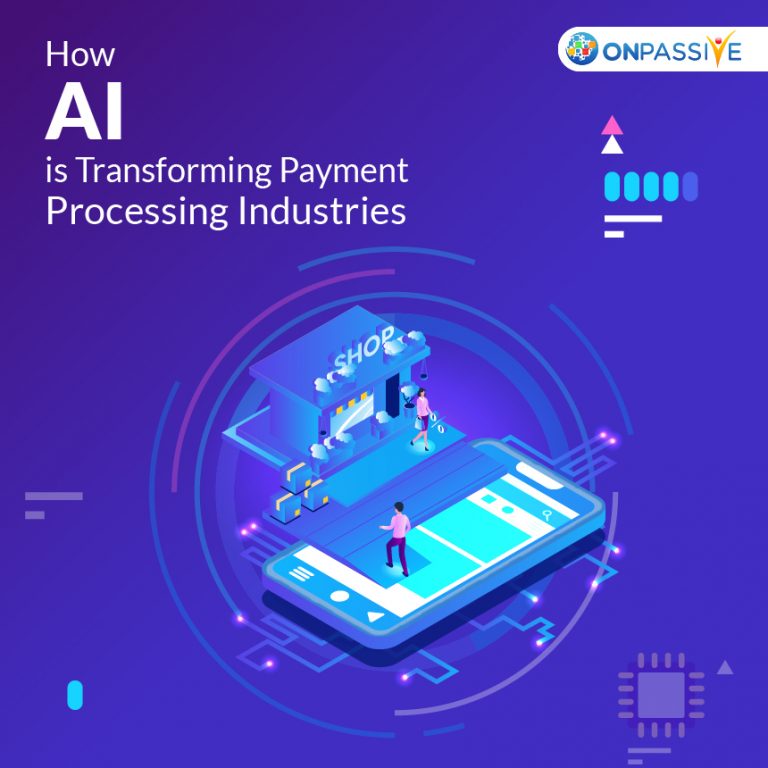
Digital disruption is significantly affecting how organizations operate in our contemporary world and revolutionizing industries, including the financial sector. Numerous enterprises are starting to access various alternatives and embrace options that would help them make worth and boost sales in the face of ever-increasing and evolving advanced technologies. The financial sector is encountering innovative changes, and the essential among them is an increment in the provision of customer-focused services.
Artificial Intelligence in advanced digital payments is right now having an incredible impact on the financial industry. Almost, all financial technology organizations are, at present, using AI to minimize costs, value and save time.
The growing numbers of Fintech organizations that are arising by day will redefine the future, and simulated AI technology applications will allow the business to upgrade and enhance competitiveness and boost sales.
Going ahead, Artificial Intelligence in digital payments environment will help monetary organizations to boost their income, limit risk, and increment their returns, whether in trading, banking, investing lending, or the fintech industry.
Benefits of AI in the digital banking/financial industry:
Future of Digital Payments – AI algorithms and automation
Machine learning and automation AI encourages business to automate errands; for example, information records matching, data analysis, and more. Artificial Intelligence in digital payments will soon supplant human ability to settle on a choice with more sophisticated technologies given its constant learning capacity. AI algorithms are beneficial to organizations as they make the task of access enormous data and handle it for helpful insights significantly more successful.
Simulated AI can presently manage various kinds of data, including parameters and numbers. It can make analyses, decipher data, and compose text almost as much as humans. AI in payment business similarly helps in image recognition, activity recognition and scene understanding, which can help in fraud detection.
Assets maximization
Artificial Intelligence assists financial assistance organizations in setting aside time and cash. AI algorithms are used to analyze information, generate insights, improve customer service, and anticipate sales performance and boost sales.
Data filtering and sentiment analysis
Artificial Intelligence in digital payments helps human specialists in the finance business be more productive by filtering essential data gathered from various sources. For example, Reuters News Tracer uses Machine Learning algorithms to filter channel tweets and accumulate some breaking news before reported anywhere.
Essentially, financial services companies can use AI in payment business to recognize brand sentiment from social media and text information, examine it, and convert it into helpful business guidance.
Impacts of Artificial Intelligence on different verticals of the financial business:

Artificial Intelligence in digital payments supports efficiency, gives insights about information, and oversees risk. Chatbots help banks offer superior assistance to clients despite how they are yet to develop to the point where they can manage client assistance without human intervention. Artificial intelligence deals with natural language, so that bots can tune in to agents’ phone calls and give the right real-time response.
Top industry players like Wells Fargo use chatbots to help client care uphold, save time and cost. Many chatbots use AI cognitive technologies and predictive analytics to give customized client support, access the monetary portfolio of clients, their financial banking history, and investment objectives for trade robotization and giving trading advice.
- Predictive analytics advanced technologies utilize an organization’s client base to make churn prediction, progressed revenue prediction, and estimate sales.
- Cognitive technology and Artificial Intelligence (AI) help the digital presence and proficiency of banks and help them stay competitive in FinTech threats. Research information from the Narrative Science and National Business Research Institute show that around 32 per cent of organizations in the financial business are using AI technologies like Voice Recognition, and Predictive Analytics.
- Artificial Intelligence will form the future of banking since AI in payment business makes progressed data analytics conceivable. It assists in eliminating fraud and boost compliance. Simulated AI algorithms would now be able to perform anti-money laundering activities that require days to finish in a few seconds.
- Through AI assistance, banks would now be able to manage and dissect huge informational indexes progressively for significant insights. AI technologies, including AI bots, advanced digital payment advisers, and biometric fraud detection strategies, help banks improve their services quality. It means enhanced revenue, limited expenses and an increase in profits.
Conclusion:
It’s critical to ensure organizations strike a right balance between minimizing expenses low for their members yet permit the company to push ahead with the adoption of various AI technologies to improve and give incredible customer support and magnificent customer products for their individuals.
The adoption of Artificial Intelligence in digital payments/banking is proceeding to transform organizations in the industry, give more noteworthy levels of value and personalized experiences to their clients, reduce risks and increment opportunities involved in being the financial engines of our modern economy.



Carol Lefrancois
3 years ago